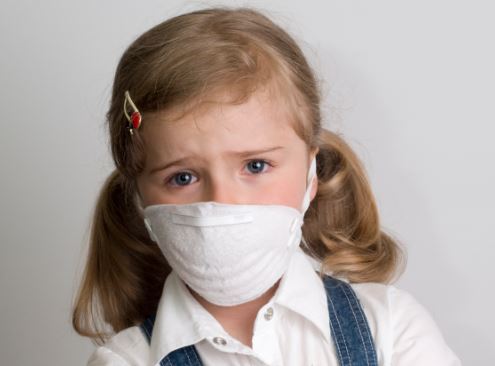Just one day of bad air can negatively affect children’s health, caution scientists
04/14/2021 / By Divina Ramirez

Exposure to air pollution has been associated with serious health problems in adults. However, its effects on children’s health remain unclear. Now, a study has shown that children exposed to air pollution for as little as one day may face a higher risk of heart disease and other ailments in adulthood.
Published in Scientific Reports, the study also showed that early exposure to bad air alters children’s genes in a way that may affect their long-term health.
This study may change the way parents think about the air that their children breathe. It may even help experts devise better clinical interventions for children exposed to elevated levels of air pollution.
Exposure to air pollution linked to higher risk of disease
To identify the multifaceted impacts of air pollution exposure on children’s health, a team of researchers led by Mary Prunicki, the director of the Sean N. Parker Center for Allergy and Asthma Research at Stanford University, studied a predominantly Hispanic group of children aged six to eight years from Fresno, California.
Fresno ranks among the top five most polluted cities in the United States in terms of both short-term and year-round particle pollution, as well as ground-level ozone pollution, due to wildfires and industrial agriculture.
Prunicki and her colleagues used continuous daily pollutant concentrations measured at central air monitoring stations in Fresno and daily concentrations from meteorological and geophysical data to estimate average air pollution exposures for one day, one week and one, three, six and 12 months prior to each participant visit.
When they looked at this data with regard to the participants’ blood pressure readings and blood samples, they found that long-term exposure to particulate matter 2.5 (PM2.5), carbon monoxide and ozone is linked to increased deoxyribonucleic acid (DNA) methylation.
Methylation changes the activity of DNA molecules without changing their sequence. The result may be passed down to future generations. DNA methylation may lead to serious health problems, such as atherosclerosis, cancer, nervous disorders and cardiovascular disease.
The researchers also found that exposure to air pollution led to increased monocytes, white blood cells that play a key role in the buildup of plaques along arterial walls. Over time, plaque buildup can harden and narrow the arteries, restricting blood flow to the heart. Therefore, children exposed to long-term air pollution might be predisposed to heart disease in adulthood.
Worse, the researchers found that air pollution can negatively affect children’s health even after just one day of exposure. “That is certainly startling, especially for this age group,” said Prunicki.
How to combat air pollution
Despite these sobering findings, the researchers noted that there are still several ways parents can protect their children from the negative impacts of air pollution. For one, parents should keep their children indoors as much as possible if there is wildfire smoke in the area, said Prunicki.
But if children need to go outside to burn off some energy, it’s a good idea to check the air quality index level so that they can avoid spending time outdoors on days when air quality is particularly bad.
Prunicki also advises parents to have their children not be as physically active as usual on days they spend time outdoors. This ensures that the children are not straining themselves and taking in lungfuls of bad air, especially in places that normally see elevated levels of air pollution.
In addition, the researchers support prescribed burning. This practice is usually done in areas that see frequent wildfires to reduce the amount of dead branches and foliage that can fuel future wildfires. (Related: Human intervention has made forests less resistant to drought, pests, wildfire.)
Follow Pollution.news for more articles about the impacts of air pollution on human health.
Sources include:
Tagged Under: cardiovascular disease, children's health, environment, heart health, research
RECENT NEWS & ARTICLES
COPYRIGHT © 2017 RESEARCH NEWS





















